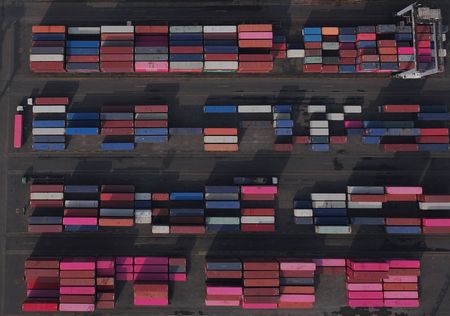LONDON (Reuters) -Britain set up a secret scheme to bring thousands of Afghans to the UK after their personal details were disclosed in a data leak, putting them at risk of reprisals from the Taliban after their return to power in Afghanistan.
The data breach and relocation programme were made public on Tuesday after a court injunction banning their disclosure was lifted.
WHAT HAPPENED?
In early 2022, a spreadsheet containing details of Afghans who had worked for the British government prior to the Taliban takeover in 2021 and had applied for relocation to Britain was emailed to someone outside of government systems by mistake.
The data was thought to contain the names of a small number of applicants for the scheme, but actually had personal information linked to around 18,700 applicants and their family members.
In August 2023, the UK’s Ministry of Defence (MoD) discovered part of the dataset had been published on Facebook.
WHAT DID THE GOVERNMENT DO?
The government, then-led by Prime Minister Rishi Sunak’s Conservative Party, sought to keep the breach a secret using the British legal system.
A judge at the High Court in London on September 1, 2023, granted a superinjunction, which is an order banning not just disclosure of any details but the existence of the order itself.
Thereafter, judges decided to maintain the superinjunction because the MoD said there was a real risk that the Taliban did not know about the dataset and if they learned of its existence would take steps to kill or injure those whose names were on it.
The government set up the Afghanistan Response Route (ARR) in April 2024 for those who had not previously been found eligible for relocation but were judged to be at the highest risk of reprisals by the Taliban as a result of the leak.
That scheme has now been closed.
WHY ARE WE HEARING ABOUT IT NOW?
After several private hearings, a different High Court judge ruled in May 2024 that the injunction should be lifted, citing among other things the inability of the public or parliament to scrutinise the government’s decisions.
This decision was, however, overturned by the Court of Appeal in July 2024 in light of the potential risks to those whose information had been leaked.
The government commissioned a review of Britain’s relocation policy earlier this year, which reported that even the Taliban acquiring the dataset was “unlikely to substantially change an individual’s existing exposure” to harm.
The MoD then told the High Court earlier this month that it was applying to lift the injunction, which took place on Tuesday.
HOW MANY PEOPLE HAVE BEEN AFFECTED AND HOW MUCH HAS IT COST?
British Defence Minister John Healey said 900 Afghans named in the breach and 3,600 of their relatives had been relocated to Britain directly as a result of the leak. A further 600 invitations to those named in the leaks would be honoured, plus an unspecified number of family members.
So far, more than 16,000 people affected by it had been relocated to Britain as of May this year, though some of those affected had been relocated under existing schemes.
The overall cost of the leak was estimated at about 2 billion pounds, said one government official, who declined to be named.
WHAT HAS HAPPENED TO THOSE NAMED?
The government-commissioned review concluded there was no evidence which clearly pointed to the Taliban gaining possession of the dataset.
It said there was little evidence of intent by the Taliban to conduct a campaign of retribution.
The review said while killings were undoubtedly still occurring in Afghanistan, and human rights violations were extensive, it was extremely difficult to determine the causes of individual killings or detentions.
(Reporting by Sam Tobin, Michael Holden and Andrew MacAskill, editing by William James and Alexandra Hudson)









